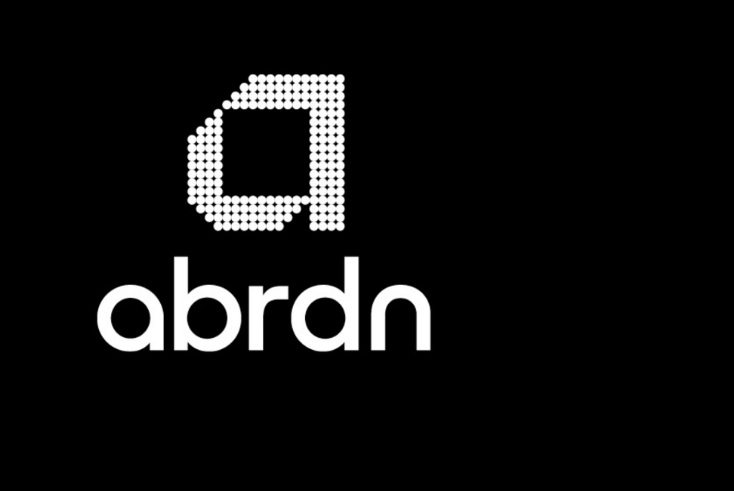Dominic Mills wonders if vowel-free branding will catch-on and why trade bodies bother drawing their own conclusions from meaningless surveys
Thr’s smthng bt crprt rbrnds tht vtes rdcle, spclly ns tht r rdcl lk abrdn’s lst wk tht droppd th vwls.
Ok, you’re probably as exhausted reading that as I am typing it, but let’s just have a brief think about the rebrand last week by the fund management company, formerly known as Standard Life Aberdeen and henceforth to be known as (sic) abrdn following its decision to drop both Standard Life and the vowels from the remaining part of the name.
Most people won’t know of or care about the Aberdeen brand (incidentally, without the vowels, it’s an anagram for ‘brand’) but they may well have an ISA or a pension with it (as I do).
Nor are they likely to know its unfortunate nickname after its merger with Standard Life — Stab — which may, or may not, have played any part in the name change.
But corporate rebrands anyway are endlessly fascinating because they tell us various things: Business trends generally; the future direction of individual businesses in which we may be invested either literally or emotionally; the baggage they may wish to drop; and the vision (or hubris) of executives at the top.
So I often take an undue interest in them.
In March for example, Reckitt Benckiser announced a rebrand, the latest in a confusing series of name changes that had seen it go in less than 20 years from Reckitt to RB to Reckitt Benckiser and back to Reckitt again… or roughly like that.
By and large, everybody hates such corporate rebrands, especially when they involve nothing or virtually meaningless words such as Accenture, Aviva, Diageo, Consignia and the most ridiculous of the lot, Monday (accountants PwC rebranding its consultancy unit for all-too-brief period before it could stand the shame no more).
They tend to follow a pattern. A media storm blows up, often fuelled by wilfully erroneous media reports of the cost of the rebrand when the physical costs (ie signage, collateral and so on) are conflated with the agency’s fees leading to ‘they- paid-£5 million-for-that?’-outrage.
There’s a social media pile-in as everybody laughs at the pretentious rationalisation behind the rebrand. And then life continues.
Here for example, is Reckitt’s: “The R at the heart of the symbol stands for our unity, strength and relentless pursuit, inspired by Reckitt’s purpose to protect, heal and nurture. It denotes Reckitt’s role in the world as a partner and a catalyst for positive transformation. The shell-like quality of the symbol evokes a sense of protection and a reference to the natural world.”
Daft, but strip away the crap and some of the thinking behind the Reckitt change stands-up to scrutiny.
The name was unnecessarily long and confusing; having sold off brands like Scholl, its portfolio was more concentrated on hygiene; there is a value to provenance, in this case its roots as a Hull-based chemicals business called Reckitt; and, not least, the benefit of a pronounceable name.
[advert position=”left”]
We can debate whether the same applies to abrdn. Here’s the official blurb, giving it the large on differentiation, digital enablement, consistency, clarity, future-facing and the full set of buzzword bingo.
But how that gets anyone to abdrn is anyone’s guess, all the more so given that it fails two of the key tests of branding.
One, make it immediately and instinctively pronounceable.
If native English speakers are defeated by this, what chance a global audience?
Two, if you have provenance or roots, don’t throw it away.
Scotland has a reputation as a centre of money management expertise: HQ’d in Edinburgh and rooted in Aberdeen, the locations convey the sort of solidity and integrity you’d want in someone looking after your cash.
Will this vowel-free branding catch on?
Unilever to Nlvr…Pepsi-Cola to Pps-Cl… Apple to Ppl…Amazon to Mzn…nah.
Lord Obvious reports
Oooh, I do just love it when lobby groups behave in gloriously predictable ways… like, for example, the IAB Europe.
Faced with the existential threat that Apple’s new IoS update and the general regulatory direction of travel offers to the business model of its members, the IAB Europe rushed out a consumer survey proving that, phew, Europeans just love targeted advertising.
Asked if they would prefer to mix their craft gin with a) arsenic or b) a well-known artisanal tonic, Europeans overwhelmingly chose b).
Er…sorry. What I meant to say was, asked if they would prefer an ad-supported internet to a paid-for one, 75% said they would prefer the latter.
If they had to pay for stuff, 48% would reduce their internet activity to avoid paying for anything, and 30% would reduce their activity in order to pay less. Hooray. Triples all round!
You can read the full thing here or get a shorter version here.





